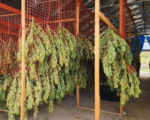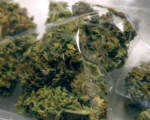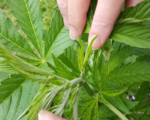In a twist that’s got the hemp industry breathing a sigh of relief, the U.S. Senate has removed a proposed federal ban on intoxicating hemp-derived THC products from a major agricultural spending bill. The decision marks a significant moment in an ongoing battle over how to regulate a rapidly growing and often misunderstood sector.
The disagreement between Kentucky’s two Republican senators — Rand Paul and Mitch McConnell — came to a head on July 29. In the end, it was Paul’s more libertarian approach that won out, stopping McConnell’s tighter regulatory language in its tracks, at least for now.
McConnell’s Crackdown Hits a Wall
McConnell’s proposed amendment was no small tweak. It would’ve redefined hemp to effectively outlaw any product containing synthetic THC, delta-8, THCA, or anything similar in chemical effect — whether it got you high or not.
This was his way of “closing the loophole” left open in the 2018 Farm Bill. That legislation legalised hemp federally but didn’t anticipate how creative the industry would get with semi-synthetic cannabinoids, leading to a flood of psychoactive products on shelves across the U.S.
But critics — including farmers, processors, and libertarians like Paul — say it went too far. The ban wouldn’t just regulate, it would decimate large swathes of a still-fragile hemp economy.
“This would have criminalised thousands of small businesses overnight,” said one Kentucky-based hemp farmer. “And for what? A political talking point?”
Paul, who has long supported hemp as a legal crop and product line, saw the provision as regulatory overreach. His effort to strike it from the bill gained enough quiet backing behind the scenes to get it pulled before the bill moved forward.

Why This Fight Matters So Much
At the heart of this fight is a very specific issue: how we define what’s legal to sell and consume under the banner of hemp.
Ever since the 2018 Farm Bill drew a clear legal line between hemp and marijuana — the latter still being federally illegal — producers have been extracting and synthesising all sorts of cannabinoids from legal hemp plants.
And here’s the kicker:
-
Products like delta-8 THC and THCA technically don’t violate federal law as long as they come from hemp and contain less than 0.3% delta-9 THC.
That loophole, as McConnell calls it, has led to vape pens, gummies, oils, and edibles being legally sold — even in states that haven’t legalised recreational cannabis.
It’s a murky area. And while states have scrambled to implement their own rules, the federal vacuum has created what one regulatory analyst called “a patchwork of confusion.”
Hemp Industry’s Lifeline — For Now
Removing the ban from the fiscal 2026 agriculture appropriations bill means the industry can breathe for another year. But it’s hardly the end of the conversation.
The hemp sector has been pushing hard for clear, consistent federal guidelines. Right now, businesses live in a weird legal limbo, especially those working with THC-adjacent compounds.
One CEO from a major hemp-based wellness brand said bluntly, “The only consistency we’ve had in five years is chaos.”
Paul’s intervention may have prevented a potentially devastating policy shift, but advocates are still bracing for more fights down the road. The Farm Bill — which comes up for renewal every five years — remains the elephant in the room.
Kentucky at the Centre of It All
It’s worth noting the irony: Kentucky has been both a symbol of hemp’s promise and its pitfalls.
McConnell was instrumental in legalising hemp nationwide in 2018. But as the market exploded, so did criticism about unregulated psychoactive products — some of which look suspiciously like traditional cannabis edibles.
Paul, meanwhile, has stayed consistent in his hands-off philosophy. He’s long opposed the Drug Enforcement Administration’s attempts to redefine or restrict hemp extracts and has championed deregulation where possible.
So what happens when two powerful senators from the same state — both with deep ties to the hemp economy — completely disagree?
Apparently, the answer this week is: one wins, and the other retreats quietly, for now.
What Could Come Next
Though the Senate has removed McConnell’s ban proposal, it’s a safe bet this issue will resurface — perhaps louder and sharper.
Congress is expected to revisit the Farm Bill later this year or early next. That’s when lawmakers will likely have to wrestle again with:
-
Whether to set a federal potency cap on all hemp-derived cannabinoids
-
How to define the legality of synthetic or semi-synthetic THC
-
What role the FDA will actually play in consumer safety enforcement
And there’s mounting pressure. According to a 2024 industry survey by the U.S. Hemp Roundtable:
| Issue | % of Respondents Who Ranked It “Critical” |
|---|---|
| Federal Regulation of Hemp THC | 81% |
| Consumer Safety Standards | 76% |
| Retail Market Access | 64% |
| State-Federal Legal Conflicts | 59% |
So yeah, this isn’t going away. If anything, it’s picking up speed.
Political Fallout and Quiet Cheers
Don’t expect fireworks on Capitol Hill over this. But behind closed doors, the decision to strip the ban language likely sent waves of relief through hemp lobbyists and small business owners.
Even state regulators — many of whom are trying to build frameworks for legal sales — were cautiously optimistic. One official from Colorado’s agriculture department said, “It gives us breathing room. That’s all. But we’ll take it.”
Meanwhile, McConnell’s camp has stayed relatively quiet, perhaps planning a strategic pivot in future negotiations.
Paul? He’s already back to pushing for full de-scheduling of cannabis.
Maria Garcia is an award-winning author who excels in creating engaging cannabis-centric articles that captivate audiences. Her versatile writing style allows her to cover a wide range of topics within the cannabis space, from advocacy and social justice to product reviews and lifestyle features. Maria’s dedication to promoting education and awareness about cannabis shines through in her thoughtfully curated content that resonates with both seasoned enthusiasts and newcomers alike.








